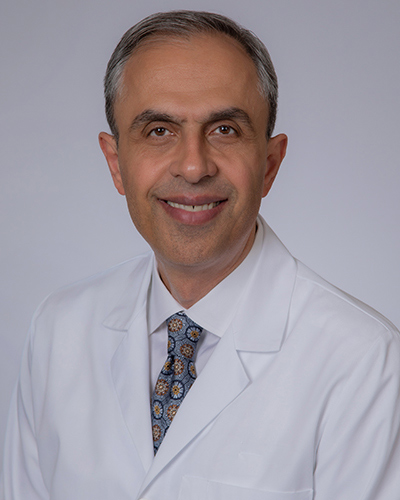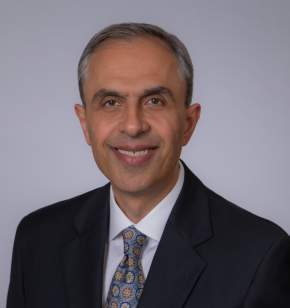Meningioma Recurrence


A meningioma is a tumor in the part of the central nervous system (CNS) known as the meninges – the membranes surrounding the brain or spinal cord. Despite being categorized as a brain tumor, a meningioma is technically not a brain tumor. However, it is classified as such because it may compress or squeeze the brain, vessels, and nerves.
Meningiomas are the most common type of brain tumor, accounting for about 40% of all brain tumor cases. In the United States, nearly 170,000 new cases of meningioma are diagnosed yearly, with women being more likely to develop these tumors than men.
Most meningiomas are slow-growing and typically benign, meaning they are non-cancerous. However, they can pose several challenges and cause severe complications if not treated appropriately. One of the most challenging aspects of managing meningioma patients is the risk of recurrence after initial treatment.
For meningiomas, the first surgery is the best chance at the safe cure (avoiding the tumor coming back) and therefore an experienced neurosurgeon is crucial for the best outcome of the patient.
What Is Meningioma Recurrence and How Can It Occur?
Meningioma recurrence refers to the regrowth of a meningioma tumor after it has been treated and removed. This can happen at the same site where the initial tumor was located or rarely in a different part of the brain or spinal cord. Recurrence rates can vary depending on various factors, including:
- The type or grade (aggressiveness) of the meningioma
- The extent of the tumor removal during the initial surgery
- The type of treatment initially used
The chances of recurrence can increase with each subsequent tumor surgery and can happen months or years after the initial diagnosis. One study found that the five-year recurrence rate was around 7-23% for grade I, 50-55% for grade II, and 72-78% for grade III meningiomas.
By understanding the factors contributing to recurrence, healthcare providers can monitor their patients more effectively, identify early symptoms, and determine appropriate treatment plans to ensure the best possible outcome.
What Causes Recurrence?
The exact cause of meningioma recurrence is still not fully understood. However, medical experts cite the invasive behavior of the tumor as a key factor. Several factors have also been identified as contributing factors:
- Incomplete Tumor Removal: Meningiomas that are completely removed have a 24 to 32% chance of recurring in 15 years. But the chances of those not removed completely have a higher likelihood of recurring within 10 to 20 years.
- Tumor Grade: Primary CNS tumors are graded based on several factors, including their growth rate, location, type, and extent of spread. Higher-grade meningiomas (grade II and III) are more than twice as likely to recur compared to lower-grade (grade I) tumors.
- Tumor Mutations: Studies have shown that mutations in the ATM and CREBBP genes may increase the risk of meningioma recurrence.
- Radiation Exposure: Radiation-induced meningiomas have been known to exhibit higher recurrence rates than other meningioma types.
Why should you have your surgery with Dr. Cohen?
Dr. Cohen
- 7,500+ specialized surgeries performed by your chosen surgeon
- More personalized care
- Extensive experience = higher success rate and quicker recovery times
Major Health Centers
- No control over choosing the surgeon caring for you
- One-size-fits-all care
- Less specialization
For more reasons, please click here.
Diagnosing Meningioma Recurrence
The process of diagnosing recurring meningioma involves a thorough neurological exam followed by an imaging test with contrast dye. This involves tests such as magnetic resonance imaging (MRI) and computerized tomography (CT), similar to those conducted at the time of the original diagnosis.
Regular follow-up imaging is critical as it helps monitor patients for signs of new tumor growth following initial treatment. These scans may be performed more frequently during the first few years after treatment, often every six months to a year. The interval between scans may then be increased for patients who remain stable and free of recurrence.
In some cases, a biopsy may be performed to confirm the recurrence and determine the tumor grade, providing essential information for the medical team to decide on the most appropriate treatment strategy.
Treatment Options for Meningioma Recurrence
Treatment options for meningioma recurrence depend on various factors, such as the location and size of the tumor, previous treatments, and the patient's overall health. Some common treatment options include:
Surgery
When a patient presents with recurrent meningioma, the surgical approach is carefully considered to maximize tumor removal and reduce the likelihood of further recurrence while minimizing risks to the patient. In these procedures, a procedure known as a craniotomy is performed to gain access to the tumor and remove the growth.
Surgery for recurrent meningioma aims to remove as much of the tumor as possible. However, it is important to note that surgery may not always be able to remove the entire tumor, depending on its location and relationship with critical structures. As the first surgery has the best chance for adequate tumor resection, subsequent surgeries are associated with less chance of complete tumor removal.
For instance, if the tumor is located near delicate brain structures or blood vessels, complete removal could pose a high risk of damage to these vital areas.
Radiation Therapy and Radiosurgery
Surgery may not be possible or enough to remove a meningioma completely. In these cases, radiation therapy may be performed for primary or post-operative treatment of meningioma recurrence.
- Radiation therapy typically includes different techniques, such as:
- External beam radiation therapy
- Stereotactic radiosurgery
- Intensity-modulated radiation therapy
Radiation therapy aims to control the tumor's growth while minimizing damage to the surrounding healthy brain tissue.
Chemotherapy and Targeted Therapy
Chemotherapy and targeted therapy are alternative treatment options that can be considered for managing recurrent meningiomas. Chemotherapy involves using anti-cancer drugs to kill tumor cells or slow their growth.
On the other hand, targeted therapy specifically targets molecular abnormalities within the tumor cells, potentially offering a more effective and less toxic approach to treating recurrent meningiomas. Certain targeted therapy drugs, such as bevacizumab, have shown some promise in improving outcomes for patients with recurrent meningiomas.
Side Effects of Meningioma Recurrence Treatment: What to Expect
As with any medical treatment, meningioma recurrence treatment can cause various side effects. The severity and duration of side effects may vary depending on the chosen treatment.
The following are common side effects you can expect from each treatment method:
- Surgery: Potential risks of surgery include infections, bleeding, damage to nearby brain tissues, and complications related to anesthesia.
- Radiation Therapy and Radiosurgery: Side effects of radiation include fatigue, nausea, skin irritation at the radiation site, hair loss, and potential damage to healthy tissues surrounding the tumor.
- Chemotherapy and Targeted Therapies: These may cause various side effects such as nausea, vomiting, diarrhea, hair loss, fatigue, and increased risk of infections.
Before performing any treatment on recurrent meningioma, your healthcare provider will discuss all the necessary details of your specific treatment plan, including all the potential side effects and benefits. Knowing all this information beforehand will help you get a clearer picture of your journey to recovery and make an informed decision.
Empower Your Health Decisions by Seeking a Second Opinion
Receiving a meningioma recurrence diagnosis can be a daunting experience. Processing this news can be even more overwhelming as emotions rush through your mind. During this time, educating yourself about meningioma recurrence is essential to help you make informed decisions and regain a sense of control over your health and well-being.
It’s always best to seek out reputable sources and healthcare professionals you trust. Consult trusted experts like Dr. Aaron Cohen-Gadol for a second opinion.
With a distinguished career marked by over 7,000 complex brain surgeries and more than 530 neurosurgical publications, Dr. Cohen offers his expertise and dedication to patient care as an indispensable resource in your brain tumor journey.
Schedule a consultation and request a second opinion from Dr. Cohen today!











